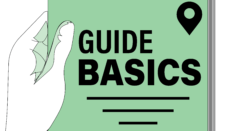Many of us have been clients or have seen clients. But we don’t know the meaning or its types. So in this article you will know who is a client.

What is client?
This term can be defined according to the context or scope that put it. In the economic sphere as a human being. It is a natural or legal person whose objective is to buy to cover their needs, whether they are goods or services. There are entities or companies that act as clients having the need to acquire certain services or items. That will be used for consumption or resale.
In the area of computing, there is a client called a computer whose device is connected to each other. By different computerized equipment to give information through the network. For example, the Wi-Fi device is the most used means to transmit a signal between several devices at the same time, giving good service as a client.
Importance
In the marketing area, the customer is the most important entity for obtaining benefits. This relationship is necessary between them to obtain good results when providing the service.
Contributing to the development of advertising programs, either through flyers (papers in the form of triptychs or simple formats). Elaborated campaigns or, as is common today, publication through social networks. Offering descriptive support of the product or service to offer.
Giving different perspectives based on strategies that only the client can assess. In accordance with his state of mind in which he is, knowing clearly what he is really looking for to cover his need.
It is good to create good leadership in the product to offer, as it is of excellent quality and thus the customer will have a more secure link with the product to buy.
Features
Political, law, health and business organizations pursue a common goal with their client, provided that the client adopts characteristics of interest that lead both sectors to obtain benefits, some of which are:
- Customers who are loyal.
- Little risk of losing them due to poor quality.
- Determined when purchasing the good or service.
- Housing address or organic entity.
- That they give recommendations.
Among others, such as having solvency or liquidity when paying and one, no less important, low prices compared to the competition.
Types of clients
This varies according to your personality, decision making, aptitude whether positive or negative, purchasing power to buy the product and more. Since all individuals are not the same and do not look for the same thing, they also vary in the search for price, articles, quality and other needs.
However, companies have found it necessary to make a not-so-complex list so as not to label people.
- Loyal or faithful: they are the ones who demonstrate their security in buying an item whose brand they like and ignore the competition.
- Hostages: they are those who keep buying the same brand due to lack of other alternatives or due to their own sense of commitment, remaining attached to it, however they are latent to new offers to change companies.
- Impatient: they do not care to take what they offer, since they are practical and what they want is that they give them a solution to what they are looking for regardless of the brand or other elements.
There’s also
- Deserters: their motivation is precarious, due to the poor quality of treatment, both personal and the product, placing themselves at an almost zero level of dissatisfaction that forces them to leave said company.
- Objectives: they are the most difficult to convince who visualize the product to the maximum to see if it benefits them, however, expectations must be kept open to convince them, providing figures and conclusive information.
- Apostolic clients and evangelists: they are those who keep their word because they have a good will to help their neighbor, and they lead circles of people who bring them messages of products or brands for the benefit of the company.
- Mercenaries: they are those who acquire products according to their offer regardless of their quality.
- Undecided customers: they are the ones who, when giving you an offer, ask you for several options to find out which one is useful to them, it is there when the seller must place more emphasis in terms of quality and price and thus motivate them to choose what they need.
- Indifferent: they don’t care if they buy or not, but you have to be more persuasive with them, adopting schemes and proposals of a greater nature, attracting them to join the brand, these being the most difficult to please.
- Aggressive: he is the one who takes a negative attitude that is difficult to persuade, but nevertheless he can gain confidence by giving him the reason for everything, even if he is not, offering him a more seductive service to encourage him.
